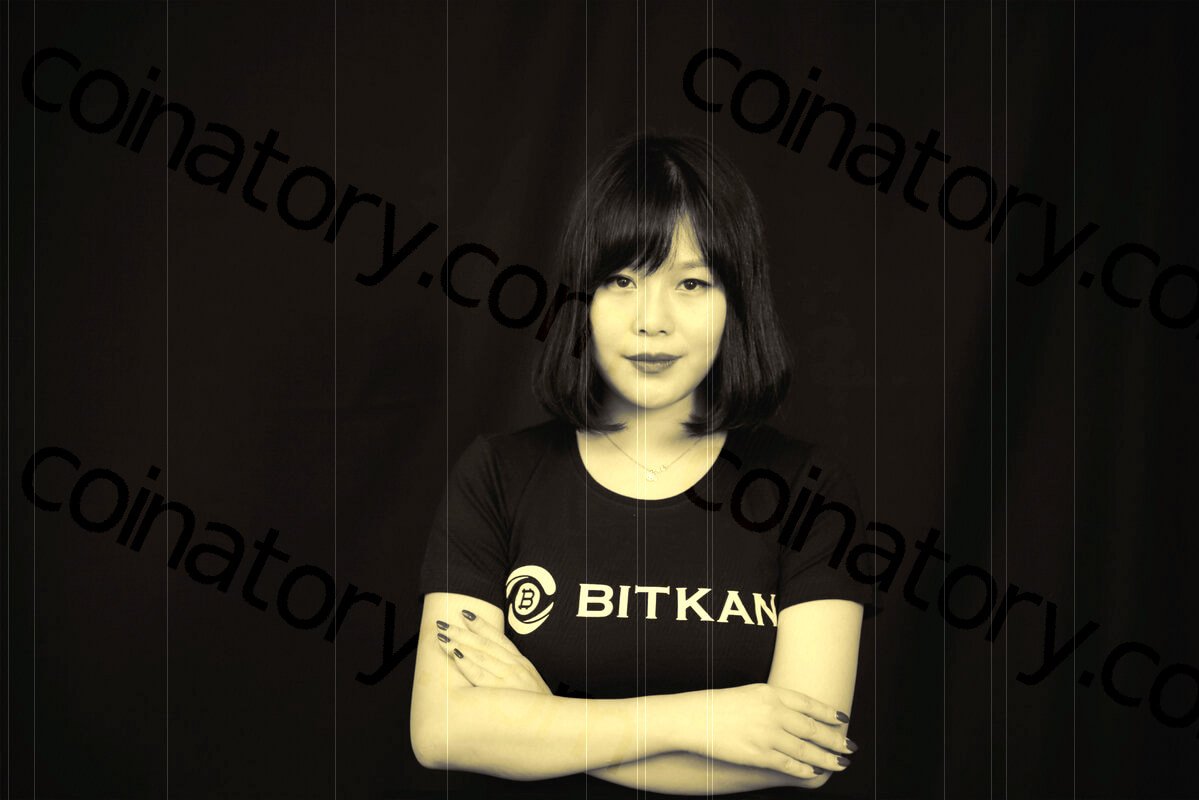
During the Satoshi’s Vision Conference in Tokyo, news.Bitcoin.com spoke with the CEO of Bitkan, Fang Yu, about the recent regulatory actions against cryptocurrency exchanges in China alongside her company’s new venture a vertical paid market called the Bitkan ‘K Site.’ The project will attempt to establish a decentralized media outlet that offers incentives to content creators, readers, and the sharing economy. Fang Yu explains that the K Site will also provide a native token called ‘KAN,’ a micro-blog, videos, articles, Q&A forums, and more.
Bitkan plans to launch the K Site around April 20th, and the token will be cross-funded and not sold as an initial coin offering (ICO). The project is backed by investors such as Bitmain, IDG, FBG, Huobi, and others. The Shenzhen-based company’s CEO Fang Yu believes that a free and equal community culture is needed online and one that is reward based. This way a community can reflect on the ecosystem’s actual business instead of a community built on artificial demand.
Fang Yu (FY): Last year as you must know the Chinese government released some regulatory guidelines towards ICOs, and also the officials shut down exchanges. But later on, some exchanges secretly were using another way to reopen their trade. At the time Bitkan was still a company registered in China, and we thought we should follow the government’s guidance. So we shut down our OTC exchange, and Bitkan was the first OTC exchange to shut down.
BC: Can you tell our readers what Bitkan is doing now?
FY: So many people know Bitkan because of the OTC exchange, but Bitkan is also well known as a news service application. We’ve been established in China since 2013, so we have years of history in the industry. We still have lots of users, and so after we had shut down the OTC exchange, we noticed even after that happened our user base was still growing. It showed us with the users that demand is still increasing for our services. We also noticed in the industry last year the industry saw a huge blooming, but still, there are some problems.
For instance, in our region, we saw a lot of fake news and many new media outlets without responsibility. We hope that with our reputation and user base our platform can offer high-quality content and help gather the actual value of the industry. We want our platform to provide real content so our users can get it directly.
BC: So there is a token involved with this platform?
FY: The token is called KAN, and it is based on the Ethereum blockchain. An ICO token is not our goal; we wish to share the value of our token with our investors and our partners, which include tech media and other experts who are devoted to this industry and who can create high-quality content. We want the K site to be a decentralized platform. Decentralized is not just a technological thing but also an economic experience. It’s like the spirit of this industry, and we wish to share the economic growth, this project will not be ICO we will be cross funding.
BC: Are you positive or negative about the Chinese government allowing cryptocurrency trading again?
FY: So as far as we can see in the short term, the Chinese government won’t be positive towards the cryptocurrency industry. Now they are paying a lot of attention to blockchain technology. They want to use this technology to have a positive effect on the traditional industry as they think it is some kind of ‘revolution.’ For now, the Chinese government hasn’t released any new regulation towards the cryptocurrency industry. Which means they don’t have any changes to add towards the cryptocurrency environment. This is why Bitkan is looking into opportunities overseas. For example, we already have an office in Hong Kong, and Singapore to develop our community media business in these countries.
For now, we can see in China there are a lot of new blockchain projects — hundreds — and there are a lot of blockchain investors in the country. Most of these projects don’t show anything practical or any real applications.
It’s just some thinking and a white paper. But this direction is appealing to the government attitude which supports blockchain technology. For us, we think its another bubble, and it’s more dangerous than cryptocurrency.
BC: What are your thoughts on the scaling debate, and how do you feel about this event [Satoshi’s Vision] being a bitcoin cash-centric conference?
FY: In my opinion, we can see the bitcoin core team’s previous actions over the course of the years.
Which has led to bitcoin transactions becoming slow and the fees were quite high which gave the user experience trouble. They were afraid to transfer bitcoin between each other, but for bitcoin cash, the community is more open.
The technology is more open too, and they are very close to the real users who use cryptocurrencies daily for payments. In the future, Bitkan will use bitcoin cash as the fundamental option for content payment. We will use our action so users can choose which is the best cryptocurrency for them.







